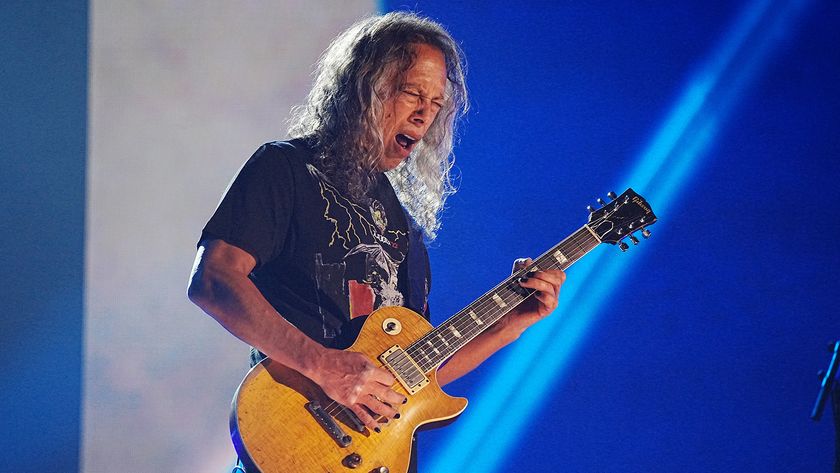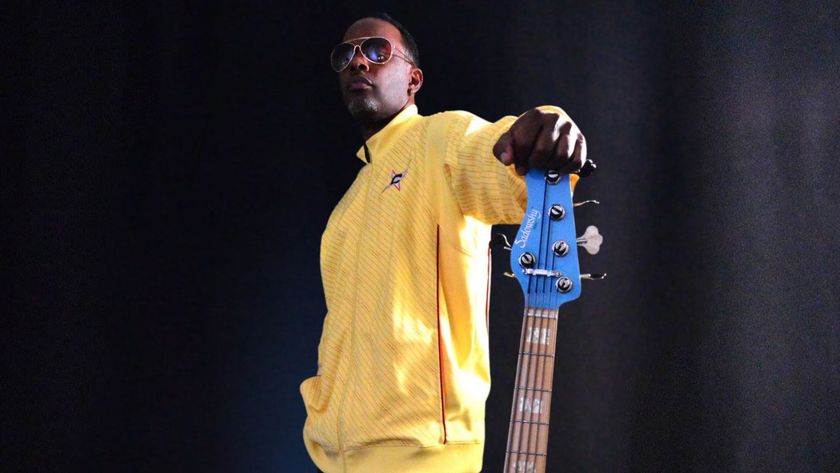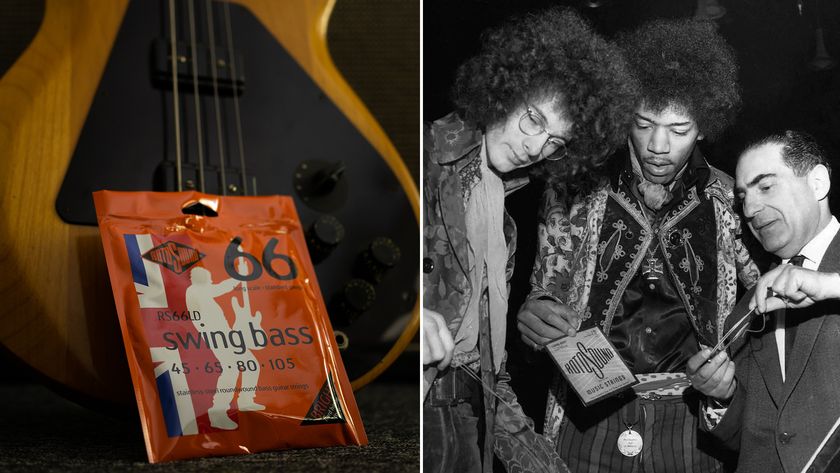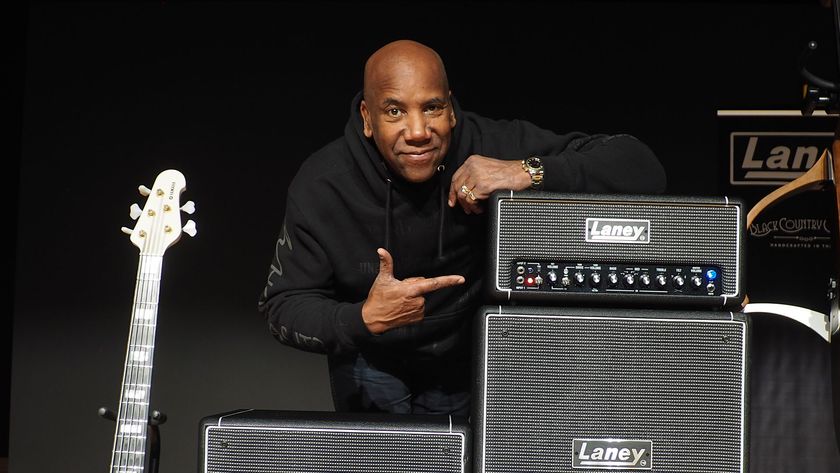Interview: Greg Bates Fills in the Blanks

Greg Bates is the genuine article – a Nashville native.
And he’s put his circumstances to excellent use.
His debut single, “Did It For The Girl,” made it to the top 5 on the Billboard country charts and in 2013 he was nominated for Best New Artist and Best Single at the 2013 American Country Awards.
Plus his follow up single, “Fill In The Blank” is a brilliantly written country masterpiece that easily exhibits why he’s a sought after writer and co-writer. Not surprisingly, it was featured on the hit TV series, Nashville.
Bates is sponsored by Martin Guitars and we’re lucky enough to have him joining us for a set on the Acoustic Nation stage during the NAMM Show in Nashville on July 19. This performance is open to the public as part of NAMM’s Music Industry Day. Find out more here.Here I caught up with Bates as he was about to head into the studio to record a new album.I want to start off congratulating you on the success of your EP and what’s been happening with you. That’s a nice way to jump in, I would say.Well I appreciate it. It’s been a good couple of years for me out of college to be able to have success that quick. I’m realizing the rarity of it, for sure. I understand that you’re in the studio now working on something new. Is that correct?Yeah, I’m about to go into the studio with Frank Rogers, who’s obviously worked with Brad Paisley and Josh Turner and Darius Rucker and had tremendous success with all of those guys. I’m about to go in with him and cut the first round of songs. Right now, it’s just been a lot of writing songs and trying to find the best songs we can to go into the studio with.Do you write a ton of songs and then pick 10 of them or something?Yeah. I think for the last record I did, I wrote upwards of 300 songs to pick 12. I’m not exactly sure how we picked 12 out of 300, but we did it somehow.Watch Greg Bates' video for his debut single, "Did It For The Girl":I guess there are certain ones that just stick with you for whatever reason.And pretty immediately, for me, I know on a day-to-day basis if I write something terrible or good or great. It depends on the day. Usually, I’ve got a pool of somewhere between 50-60 songs that I feel really good about and then we can narrow down from that. How do you typically jump into a writing session? Are you more of a riff guy or a lyric guy or both?Being a guitar player, I think my strong suit is more chord progressions and melodies and that kind of thing. I try to come in with at least some kind of feel that I want to write. I try to get in a room with writers that I know are great lyric guys. I’m more of an editor when it comes to lyrics. I can sift through and say things in different ways once it’s been said the first time.I think, as an artist and a songwriter, for me it’s more important to know what I don’t want to say than what I do want to say. When ideas get thrown out in the writing room, we use probably 10% of them. It’s good to know what 10% you’re shooting for.Right. I guess that’s why I especially like that “Fill in the Blank” song that you have because it’s so cleverly empty.Well, thanks. That song definitely made my momma proud.It’s really smart. For the recording process for your upcoming album, is that going to be a little different than what you’ve done in the past?This is the first time I’ve worked with Frank, so it’ll be different just because Frank has his way of doing things and I have my way of doing things. It’s kind of a marriage to walk in and hope that it works out and that everything kind of syncs up. But I know Frank really well and we write all the time, so it’s easier to walk in. You get kind of the jitters out of the way, which is good. This will be a different process for me because the first time around, I cut probably 40 songs over the course of 3 years for the first project and that was before I got a record deal. We were just kind of cutting as we went and making sure that we were cutting the best songs but not really cutting specifically like, “Here’s our 12 best. Let’s just cut a bunch of songs and get used to being in the studio and write a lot.” This time around the process gets shortened, and the thing that I hear all the time is that every artist has their whole life to write their first record, and they’ve got six months to write their next record. So it’s a quicker process this time around to find the songs, write the songs, and then record them. Frank is such a great song guy and I’ve been around songwriters my whole life. It’s fun to be able to work on it quick and just get in and cut the best stuff we can. So you’re from Nashville, right, so you were probably born singing a song.I always say that I was kind of destined to do this, I guess. I had a great childhood growing up around songwriters and artists. I think a lot of people that grow up in Nashville, they don’t resent the music industry, but we’re around it a lot. It’s not something necessarily that a lot of people here want to do. I was lucky enough to love it and want to do it. This has been my home my whole life and it will be my home forever and ever. When you started out, did you get nervous when you went onstage or not really?I did. I still get a little nervous when I go on stage. You put all these pieces together and you rehearse the show and you hope it’s right. For me, I walk out there and just… once the first note hits, all the nerves are gone. But it’s the 5-10 minutes before walking onstage that just drives me insane because I’m just ready to get out there and play. I try to keep myself really busy leading up to the kickoff of the show. I like to have the meet and greet as close to the kickoff as we can just so I just run right onstage. I don’t have time to sit and overthink it, for sure. So let’s talk about gear for a minute. I know that you’re a Martin artist. Let’s talk about that for a minute.Yeah, I’ve had a few Martins over the years. My first Martin, I guess I was probably 13 or 14, and I got one of the Martin DMs, one of the lower end acoustic-electric Martins. I still have that. My parents still have it at the house and I play it every time I’m over there. Right now, I’m out on the road with one of their brand new D18s. It’s great. I love every guitar they’ve let me even try out. I just think they’re making some of the best guitars right now of anybody. They all sound great. The one I’ve got now, I play it for people and they think it’s 40-50 years old. Whatever they’re doing right now is amazing. And I’m just lucky enough to be able to take one out everyday. They are really good at reproducing that vintage tone, vibe, whatever it is… mojo.Absolutely. The one I’ve got now, whatever wood they use the day they built this, it’s kind of got that Golden Era look to it. It’s a really, really great thing. I’m lucky to be working with them, because I’ve just respected that company for a long time as a guitar player. I think it’s one of those names that people that don’t even play guitar, know what a Martin guitar looks like.What else do you use? You play electric, too, I’m sure.Yeah. I’ve got a few Fender Telecasters out that I play on a lot of the shows. I grew up playing songwriter nights so the acoustic guitar is kind of my main bag. But it’s been fun to try the electric thing, too. My electric guitar player gives me a hard time on the road all the time about it, ‘cause he goes, “One day you’re going to walk in here and just tell me I don’t have a job, ‘cause you’re going to start playing electric guitar.” I said, “No, that’s not going to happen.” It is kind of fun though to do it sometimes. it’s a different approach.It’s a totally different energy. I love being able to have both in my show. I have the rockin' up-tempos with the electric and then I'm able to bring it down and have more of a tender moment during the show with the Martin. It’s a great thing for me to be able to do and I always joke with my guys and tell them I feel I’m the auxiliary guitar player in the band. I’m really excited that you’re going to play on the Acoustic Nation stage during the NAMM show in Nashville this summer!This will be my first trip to NAMM. To be able to make my first trip over there and get to play, too, that’s kind of a bonus for me!Find out what’s next for Greg Bates at gregbatesofficial.com.
Get The Pick Newsletter
All the latest guitar news, interviews, lessons, reviews, deals and more, direct to your inbox!
Laura B. Whitmore is a music industry marketing veteran, music journalist and editor, writing for Parade.com, Guitar World, and others. She has interviewed hundreds of musicians and hosts the She Rocks Podcast. As the founder of the Women’s International Music Network, she advocates for women in the music industry and produces the annual She Rocks Awards. She is the Senior Vice President of Marketing for Positive Grid, making the world safe for guitar exploration everywhere! A guitarist and singer/songwriter, Laura is currently co-writing an album of pop songs that empower and energize girls.
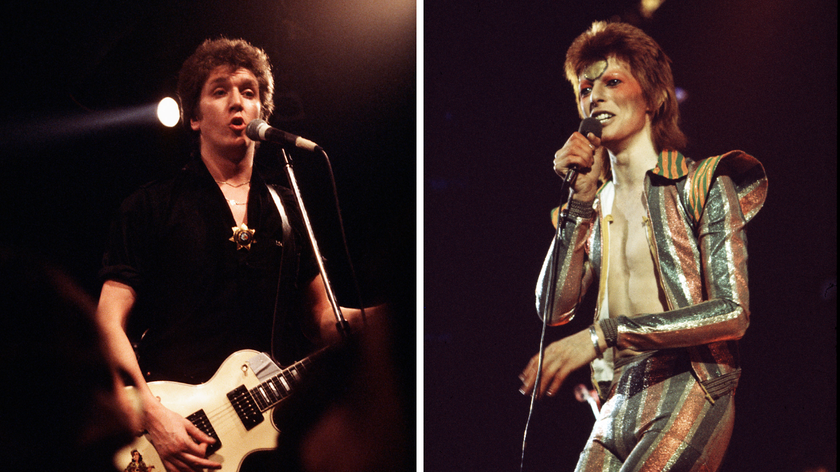
“I nicked some cymbals, the bass player’s amp head and some microphones. I got Bowie’s microphone with his lipstick on it!” On July 3, 1973, David Bowie retired Ziggy Stardust – that same day, Steve Jones stole his equipment
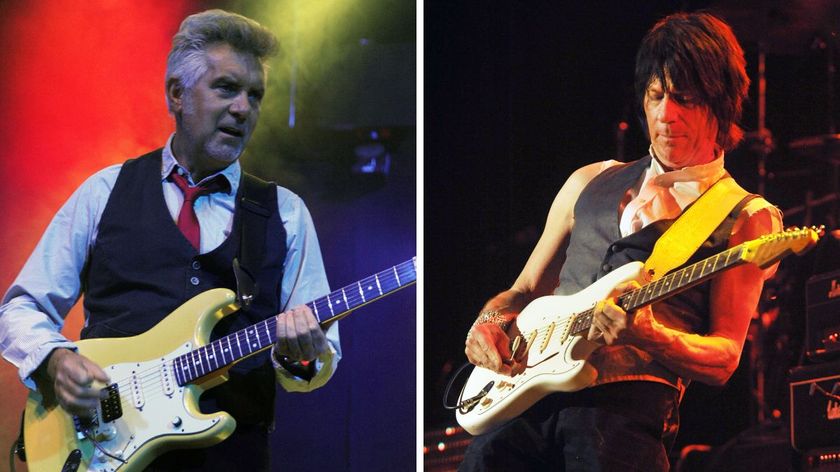
“Jeff was playing through his dodgy Marshall and didn’t like the sound. He said, ‘We’ll do it again, later on…’” Mick Rogers may be in possession of Jeff Beck’s last-ever studio recording

